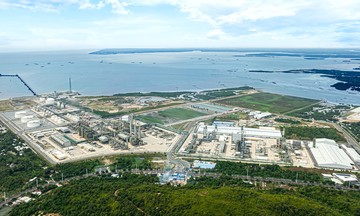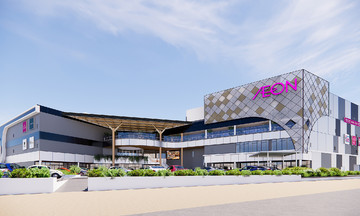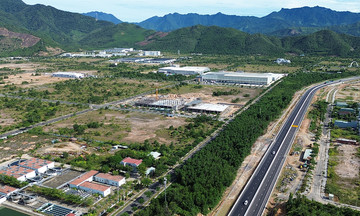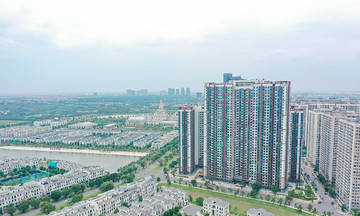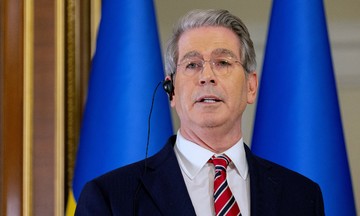"We've been extremely busy these past few days, meeting from morning till night. Industrial parks are the same," Gao said. Numerous Chinese companies are looking to build new factories or expand existing ones in Indonesia.
The main reason is the 30% import tariff imposed by the US on Chinese goods. Combined with the 25% tariff from former President Donald Trump's first term, some goods face tariffs of up to 55%.
Meanwhile, Indonesian goods entering the US are subject to only a 19% tariff, similar to Malaysia, the Philippines, and Thailand. However, Indonesia, Southeast Asia's largest economy and the world's 4th most populous nation, boasts a significant consumer market advantage over its neighbors.
"If you have a good presence in Indonesia, you already have half of the Southeast Asian market," said Zhang Chao, a Chinese manufacturer. His company currently sells motorcycle lights in Indonesia, the world's 3rd largest motorcycle market.
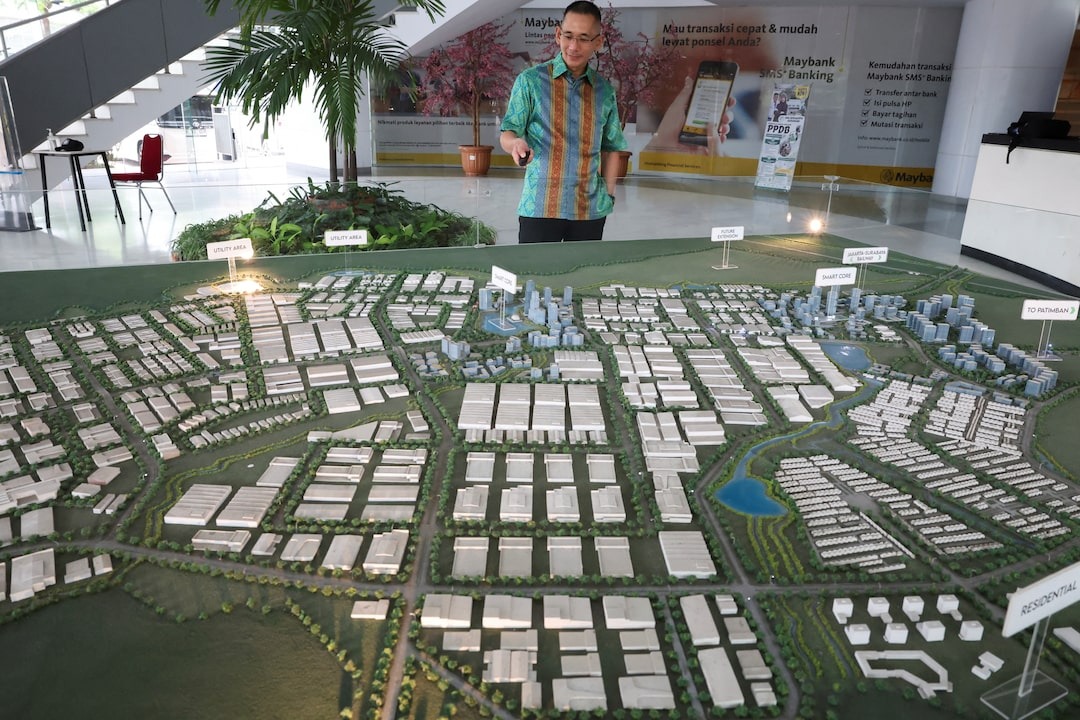 |
Abednego Purnomo, vice president of Suryacipta Swadaya, stands next to a model of the Subang Smartpolitan industrial park. Photo: Reuters |
Abednego Purnomo, vice president of Suryacipta Swadaya, stands next to a model of the Subang Smartpolitan industrial park. Photo: Reuters
Mira Arifin, Indonesia country head for Bank of America, believes Indonesia's young demographic is a key attraction for foreign investors looking to expand.
Indonesia's economy grew by 5.12% last quarter, exceeding expectations and marking its fastest pace in two years.
Indonesian President Prabowo Subianto has also been strengthening ties with China. He visited Beijing in 11/2024 to meet with Chinese President Xi Jinping. Chinese Premier Li Qiang also visited Jakarta in May.
Investment from mainland China and Hong Kong into Indonesia rose by 6.5% in the first half of this year compared to the same period last year, reaching 8.2 billion USD. Total foreign direct investment (FDI) increased by 2.58% to 432,600 trillion rupiah (26.5 billion USD). The Indonesian government expects investment to continue to rise in the second half of the year.
However, investing in the country still presents challenges: legal hurdles, administrative procedures, ownership regulations, inadequate infrastructure, and a lack of a complete industrial supply chain. These are areas China has addressed over decades to become the world's factory.
After depreciating in March to its lowest level against the USD since 6/1998, the rupiah has stabilized. It is currently trading around 1% lower than at the end of last year.
At the over 2,700-hectare Subang Smartpolitan industrial park in West Java, executives say they are flooded with inquiries from Chinese investors. "Since the agreement with Indonesia was announced last month, our phones, email, and WeChat have been filled with new clients and agents wanting to introduce clients. They are all Chinese," said Abednego Purnomo, vice president of Suryacipta Swadaya, the park's operator.
Numerous companies, from toy and textile manufacturers to electronics firms, are seeking factory locations in Indonesia, especially in West Java, the country's most populous province and home to the deep-water Patimban port.
Gao noted that the demand from Chinese investors has driven up factory and industrial property prices by 15-25% in the first quarter, the highest increase in 20 years.
Rivan Munansa, head of Indonesia industrial and logistics services at Colliers International, said Chinese businesses are rushing to relocate. The company receives inquiries about purchasing industrial land almost "every day" leading up to the tax agreement's signing.
"Most Chinese businesses want immediate opportunities. They want land or a building they can use right away," Rivan said.
Zhang said he signed a lease for a four-story office building in Jakarta in May for 100,000 yuan (nearly 14,000 USD) a year, a 43% increase from last year, reflecting the accelerating demand.
"The 19% tax rate is lower than I expected. I thought it would be 30%. In Indonesia, achieving a 20-30% profit margin is quite easy," Zhang said.
Indonesia is also a large consumer market, with consumption contributing over half of its GDP. "Indonesia always stands out. Besides helping investors diversify their supply chains, it's a huge consumer market that few countries in the region can compete with," concluded Marco Foster, ASEAN director at investment consultancy Dezan Shira & Associates.
Ha Thu (Reuters)






